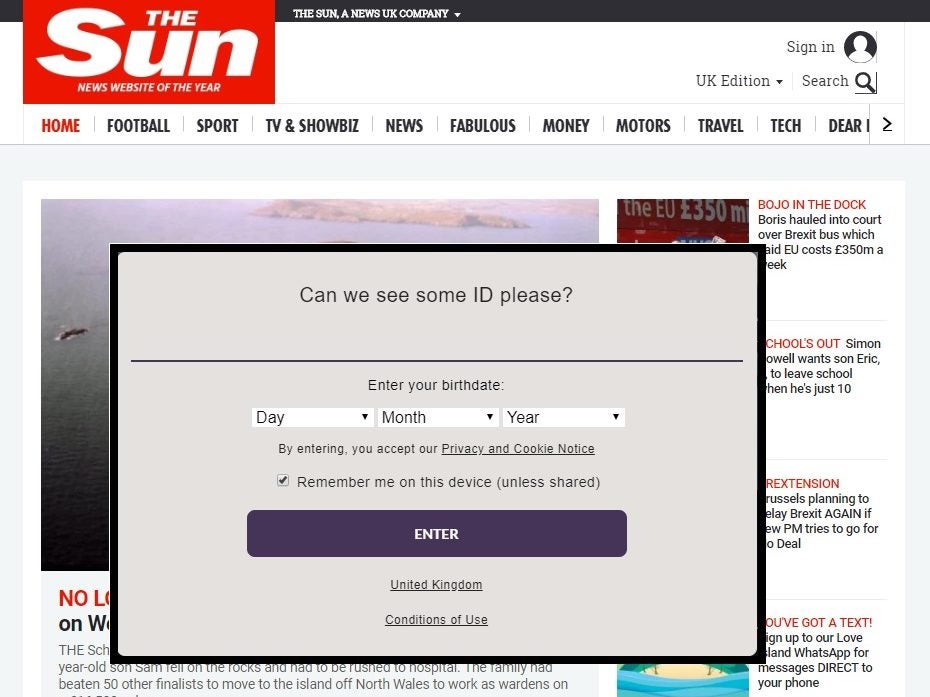
Proposed new online safeguards for children forcing websites to apply child-friendly data protections as default or use “robust” age-checking tools could do “untold harm” to media firms, editors have warned.
The Age Appropriate Design code of practice, drafted by the Information Commissioner’s Office, sets out personal data handling and privacy protection standards for under-18s to prevent their exploitation online.
The 16-point code applies to so-called “information society services” likely to be used by children, which extends to news websites as well as social media platforms, search engines, apps and streaming services.
Measures include only collecting the minimum amount of personal data needed, not sharing data, turning off profiling by default, and avoiding “nudge techniques” prompting users to provide extra personal data.
The code must apply to all users unless “robust age checks” are in place to distinguish children from adults. Asking users to give their age, as seen on alcohol brand sites for example, is not considered robust under the code.
It recommends sites “provide a child-appropriate service to all users by default, with the option of age-verification mechanisms to allow adults to opt out of the protections in this code” if they wish.
Failure to comply could result in regulatory action, the ICO has said.
The Society of Editors has warned the proposals could have “severe consequences” for news publishers, even forcing some regional titles to fold given the reliance on data gathering for advertising income.
Society executive editor Ian Murray said in a letter to the ICO: “Not only are these proposals a real threat to the financial future of media companies, they also fly in the face of other endeavours to encourage young people to engage with the world around them and play a part in their future.”
He said that, if enacted, the proposals would require news websites to ensure their content is either suitable for children or require users to prove they are adults.
“In either eventuality the media industry online would be severely harmed,” added Murray. “Making news content child-friendly will inevitably mean watering it down substantially, while asking users to provide proof of age would see a huge loss of readers.
“Without the ability to provide advertisers with market research collated from users – the aim of these proposals – the industry would be unable to attract revenue.
“While no-one wishes to see children and young people exploited, there appears to be no evidence this is actually the case with media websites.
“Yet now the industry is faced with potentially catastrophic harm in an attempt to remove an unrecorded threat.”
Murray said there had “always been an encouragement that young adults and teenagers do engage with the world through reading newspapers and following news broadcasts” despite content targeting adults.
“The proposed age-appropriate codes would seem to go against that body of thought, which in itself is strange at a time when there are more and more calls for young people, especially teenagers, to have their voices heard with regard to their future,” he said.
“Here it appears teenagers and young people under the age of 18 are to be treated as too young to be allowed to engage in the world taking shape around them.”
The age appropriate code does not cover online content, which falls under existing press regulators and newly proposed online safety laws.
A consultation on the proposals closes on Friday.
Email pged@pressgazette.co.uk to point out mistakes, provide story tips or send in a letter for publication on our "Letters Page" blog
